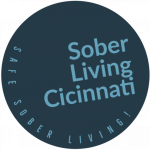Beginning the journey of recovery from addiction is a courageous and life-changing decision. However, early recovery often comes with significant challenges that can test your resolve and commitment. Understanding these common obstacles and how to address them can help you navigate the path toward lasting sobriety with greater confidence and resilience.
Understanding Early Recovery
Early recovery refers to the first few weeks to months after quitting substance use. During this phase, your body and mind are adjusting to life without drugs or alcohol. This period is crucial as it lays the foundation for long-term recovery but is often fraught with physical, emotional, and social difficulties.
Challenge 1: Physical Withdrawal Symptoms
One of the most immediate and distressing challenges in early recovery is managing withdrawal symptoms. These vary depending on the substance but often include:
- Fatigue and sleep disturbances
- Nausea, headaches, and muscle pain
- Anxiety and irritability
- Cravings for the substance
Withdrawal symptoms can be uncomfortable and may tempt some to relapse to relieve discomfort.
How to Overcome Physical Withdrawal
- Seek medical supervision for detox if necessary
- Use prescribed medications to ease symptoms
- Practice good self-care: hydration, nutrition, and rest
- Engage in light exercise to boost mood and energy
- Use relaxation techniques like deep breathing or meditation
Challenge 2: Intense Cravings and Triggers
Cravings are powerful urges to use substances again, often triggered by people, places, emotions, or stress. Early recovery is when cravings tend to be strongest and hardest to resist.
How to Overcome Cravings and Triggers
- Identify your personal triggers and develop avoidance strategies
- Use distraction techniques such as hobbies, social activities, or physical exercise
- Practice mindfulness to stay grounded in the present moment
- Build a strong support network of sober friends, family, or support groups
- Use therapy techniques like cognitive-behavioral therapy (CBT) to reframe thoughts
Challenge 3: Emotional Instability
Quitting substances can unearth intense emotions such as anxiety, depression, guilt, and anger. Your brain’s chemistry is adjusting, which can make mood swings common and overwhelming.
How to Manage Emotional Instability
- Engage in regular therapy or counseling sessions
- Practice journaling to process feelings
- Use stress management techniques such as yoga or meditation
- Consider medications for underlying mental health conditions, if recommended by a healthcare provider
- Stay connected with supportive people who understand your journey
Challenge 4: Social Pressure and Isolation
Early recovery often involves changes in social circles, which can lead to feelings of loneliness or pressure to use substances again, especially if your previous social environment revolved around substance use.
How to Navigate Social Challenges
- Seek out new social groups that support sobriety, such as recovery meetings or clubs
- Communicate your recovery goals to friends and family
- Set boundaries with people who encourage or enable substance use
- Volunteer or engage in community activities to build positive connections
- Use online support groups if in-person options are limited
Challenge 5: Rebuilding Life and Purpose
Substance use often disrupts personal goals, career, and relationships. Early recovery requires rebuilding your life and finding new purpose, which can feel overwhelming.
How to Rebuild Your Life
- Set small, achievable goals to regain confidence
- Pursue education, hobbies, or career opportunities that interest you
- Reconnect with family and repair relationships when ready
- Celebrate milestones and progress to stay motivated
- Work with a recovery coach or counselor to create a structured plan
Challenge 6: Fear of Relapse
The fear of relapse can cause anxiety and self-doubt, but it’s a common part of recovery. Understanding that relapse is a risk—but not a failure—can help you approach your recovery with realistic expectations.
How to Reduce Relapse Risk
- Develop a detailed relapse prevention plan
- Identify early warning signs and have coping strategies ready
- Stay engaged in ongoing treatment and support programs
- Practice self-compassion and avoid harsh self-judgment
- Seek immediate help if cravings or triggers become overwhelming
Challenge 7: Financial and Practical Issues
Recovery can bring financial stress due to treatment costs, loss of income, or the need for lifestyle changes.
How to Manage Financial Challenges
- Explore insurance options or sliding scale programs for treatment
- Budget carefully and prioritize essential expenses
- Seek assistance from community resources or nonprofits
- Consider job training programs or employment support
- Talk openly with your support system about financial stress
Conclusion: Embrace the Journey with Patience and Support
Early recovery is a time of significant change and growth. While the challenges can feel daunting, they are also opportunities to build resilience, self-awareness, and healthier habits. Remember that recovery is a process, not a destination.
Surround yourself with professional support, empathetic friends and family, and recovery communities. Celebrate every step forward, no matter how small, and be kind to yourself through setbacks. With patience, commitment, and the right tools, you can overcome early recovery challenges and move toward a fulfilling, sober life. Call us today at 855-675-1892.













